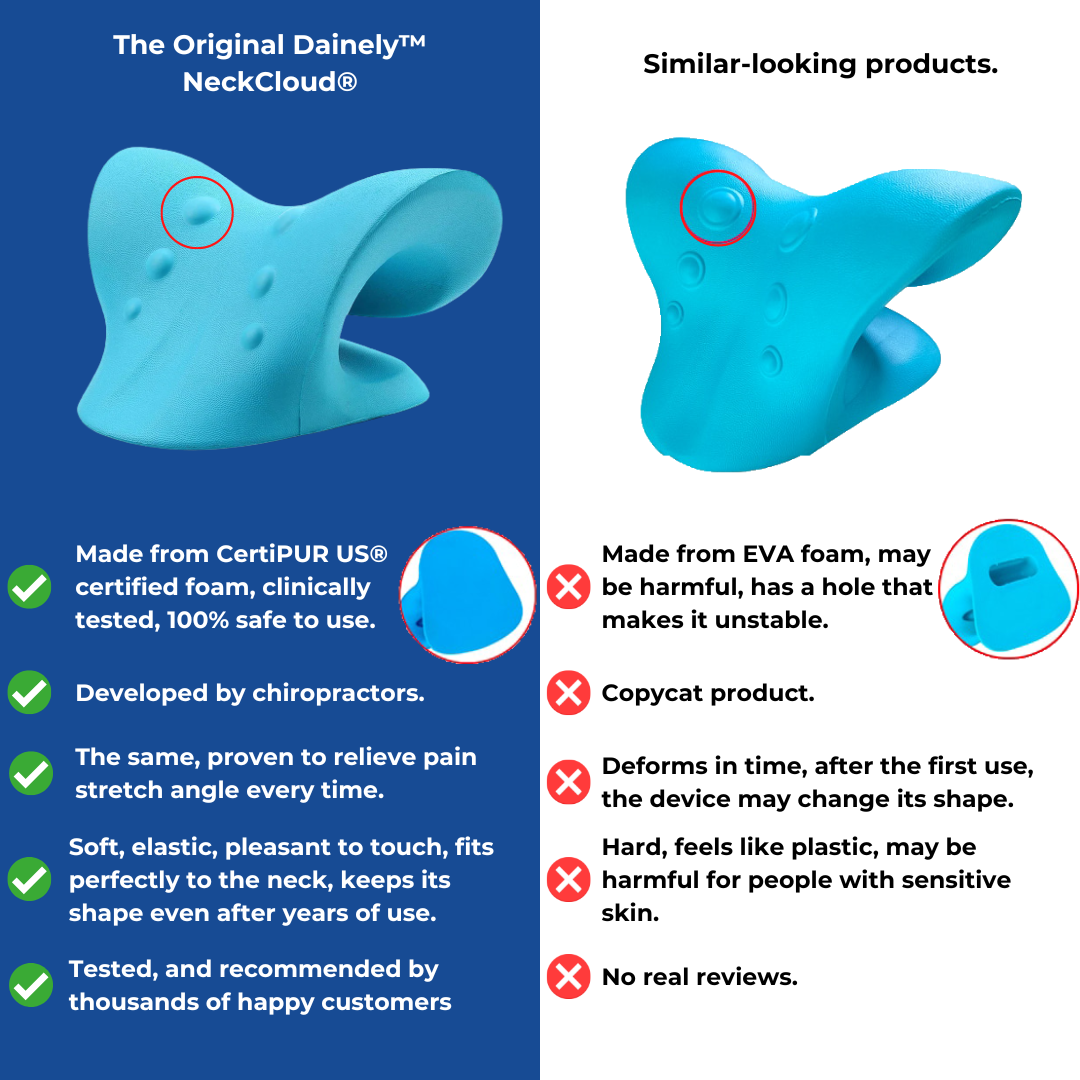Experience the Perks of the Neck Cloud for Neck and Shoulder Alleviation
Experience the Perks of the Neck Cloud for Neck and Shoulder Alleviation
Blog Article
The Impact of Tension on Neck Pain: Techniques for Lowering Stress and Pain
In today's hectic globe, it's no trick that stress and anxiety has come to be a common aspect in the beginning and worsening of neck discomfort. Join us on a journey to unwind the influence of stress and anxiety on neck discomfort and find reliable ways to relieve pain and improve overall quality of life.
Recognizing Stress-Related Neck Discomfort
Stress-related neck discomfort can materialize as tension, stiffness, or discomfort in the neck and shoulder location. The link in between anxiety and neck discomfort lies in the body's physical reaction to anxiety, which can result in muscular tissue stress and rigidity in the neck muscle mass.

Identifying Common Stress Areas
Often experienced by individuals under anxiety, stress locations in the body can supply useful understandings right into the physical symptoms of psychological stress. One common stress area is the neck, where stress and anxiety often shows up physically. Stress headaches, rigid neck muscular tissues, and restricted variety of movement are typical signs and symptoms of stress-related neck tension. The shoulders are another typical area where tension collects. Stress and anxiety can create the muscles in the shoulders to tighten up, resulting in discomfort and discomfort. Furthermore, the top back is susceptible to stress accumulation, specifically in individuals that experience chronic stress and anxiety. Poor pose and extended resting can worsen stress in this area. The jaw is also a typical area for stress-related tension, as many individuals clench their jaw or grind their teeth when worried. Recognizing these common tension areas can help individuals recognize the physical indications of tension and take steps to address them prior to they intensify into persistent discomfort or pain.
Executing Leisure Techniques
Leisure strategies are beneficial tools for reducing neck pain triggered by stress and anxiety. Furthermore, tasks like yoga and tai chi include both physical movement and relaxation, making them reliable methods for decreasing anxiety and neck pain. By incorporating these relaxation methods into your everyday routine, you can help manage tension degrees, index lower stress in the neck, and ease pain linked with stress-induced neck discomfort.
Integrating Self-Care Practices
Including self-care practices is important for keeping total health and handling stress-related neck discomfort efficiently. Taking part in routine physical task, such as gentle stretching workouts or yoga, can aid relieve tension in the neck and shoulders. Exercising excellent pose throughout the day and taking frequent breaks from extended sitting or screen time can also prevent stress on the neck muscles.
Additionally, focusing on appropriate sleep and establishing a consistent rest routine can contribute dramatically to lowering tension degrees and promoting leisure. Creating a soothing bedtime top article regimen, such as reviewing a book or taking a cozy bathroom, can help prepare the mind and body for restful rest. Furthermore, keeping a balanced diet regimen rich in nutrients and remaining moistened can sustain overall wellness and reduce inflammation that may aggravate neck pain.
Integrating mindfulness techniques, such as deep breathing workouts or meditation, can help manage stress and anxiety and promote relaxation. Taking time for oneself, engaging in hobbies, and establishing limits to shield individual time are likewise important elements of self-care that can contribute to minimizing stress and alleviating neck discomfort.
Seeking Expert Help
How can people properly address persistent neck pain that visit this page is affecting their day-to-day life and health? Seeking professional assistance can be a vital action in handling and relieving neck pain.
Chiropractic practitioners concentrate on back adjustment strategies to improve alignment and reduce tension in the neck area. Physical therapists provide targeted stretches and exercises to enhance muscle mass, enhance versatility, and improve general neck function. Orthopedic experts can offer sophisticated medical interventions such as injections or surgical options for extreme instances of neck discomfort.
Verdict

Stress-related neck discomfort can show up as stress, rigidity, or pain in the neck and shoulder location. The link in between anxiety and neck discomfort exists in the body's physical action to anxiety, which can result in muscle mass tension and tightness in the neck muscles. Tension headaches, stiff neck muscular tissues, and limited array of movement are typical signs of stress-related neck tension. By incorporating these leisure strategies right into your everyday routine, you can help take care of stress and anxiety degrees, minimize tension in the neck, and reduce discomfort linked with stress-induced neck discomfort.

Report this page